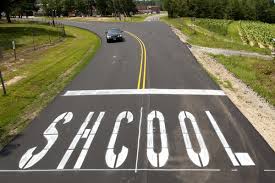Although we usually focus on middle grade in this blog I want to take a moment to consider what shifts in YA publishing mean for younger readers. YA books are not like they were when I was growing up. They’re not even like they were five years ago. Here are some things that I think are impacting the content of books for teens.
- Money
There have been a few book franchises that have out sold adult books by a mile which has attracted both media attention and writers who would not previously consider this genre.
- Movies
Most of the big YA book franchises have gone to film, generating more money and also, I suspect, influencing the content of books that are expected to go to film. It’s one thing to write a book, and then as a completely separate enterprise, write a screenplay. I think it’s an entirely different thing to write a book when you know the movie deal is part of the package.
- Romance
Most of the major romance novel publishers now have a YA imprint. This dramatically increases the number of teen books where romance is the main focus of the plot. However teen romance tends not to be shelved in a separate part of the library or bookstore, so many teens pick up a romance novel thinking they are going to get a YA novel with more substance and variety in plot themes than the typical romance novel. Also the publishing model for romance writers tends to be 2 or 3 novels a year. Some write as many as 4. Most people writing stand alone titles for young readers are not expected to write more than one book a year and many only publish a book every 3 or 4 years–a schedule which allows for careful research, mastery of craft, and artful editing and book production.
- New Adult books
There is a new category of books for 18-24 year old readers in which the usual conventions of tamer sex, milder language, less intense violence, and upbeat endings don’t apply. And many adults are reading YA novels not as teachers, librarians, and parents but as if they are written for their adult needs and issues. This has greatly expanded the readership and sales of YA but it has also tended to age up the content and loose sight of the younger end of YA readership.
So what does this all mean for the world of the MG reader. I had an interesting conversation with a person who has written many award winning YA novels. Her most recent is a great coming of age story in a gorgeous historical setting. She was asked in the editing process to make the main character 13 instead of 14 so that it could be marketed as MG fiction. Given the historical setting, a 1 year age difference didn’t affect the plot in the way it might if the character was in a modern school setting and had to be moved from high school to middle school, so she agreed. It works beautifully as a middle grade book. But here’s what bugs me. It works beautifully as a young adult book as well. The character is trying to enter a competitive profession. That’s really a teenage concern and not much of an issue for the 8-14 year olds. The character loves a girl and decides to spend the rest of his life with her. That is a clear candidate for YA, except they don’t have sex. They don’t even kiss. Given the historical period and the structure of the plot there isn’t really room for these kids to get together in a physical way. I think the book just wasn’t edgy enough for YA and so it got moved to MG. All of which leads me to two questions.
- Are we seeing a move to “age up” MG fiction?
- What is out there for the transitional teen who is too mature for MG fiction but is not interested in the intensity of much of the new YA fiction?
- In short who is serving our tender-hearted readers?

I heard Jeanne Birdsall speak recently at Wordstock here in Portland, and she was passionate about not letting her Penderwick series become a movie precisely because they would age up the content and make more of the romance and more of the sisterly rivalry than the author intended. She was willing to pass up what I would assume is a substantial amount of money to defend her tender-hearted readers.
So dear readers, what do you think? Do you writers feel a pressure to age up your work? Do you librarians, teachers and parents find it hard to find books for your tender-hearted readers? Do you editors have trouble placing the more tender-hearted stories? Do you have a great MG title that would also work for teens? Leave your thoughts in the comments please!









